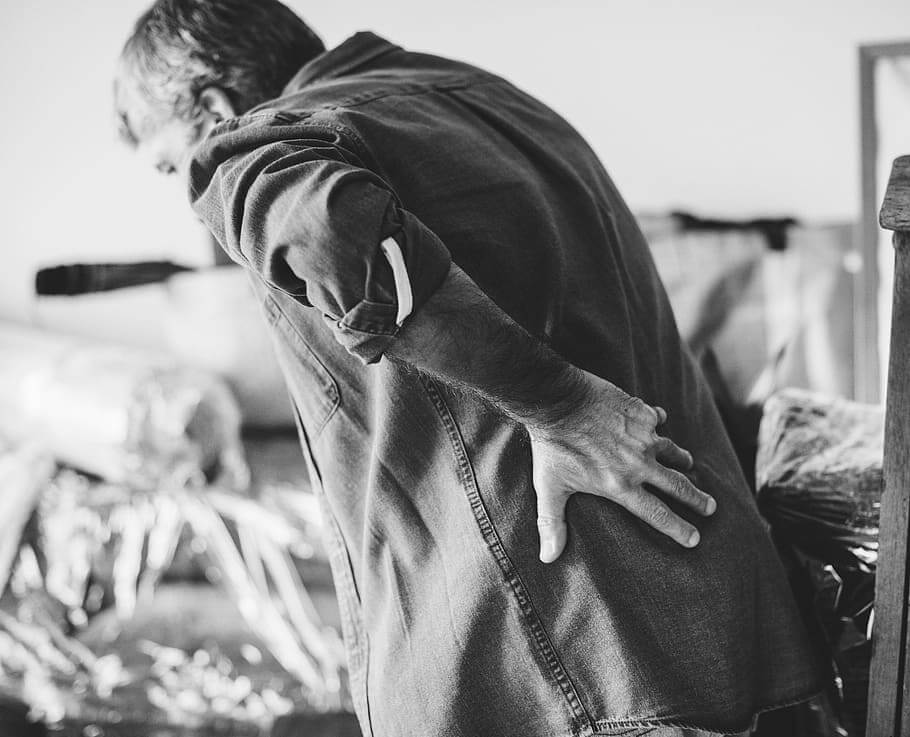
Slipped disc or herniated disc occurs when there is a rupture in the gel-like centre of the spinal disc through a weak section in the annulus. At Shalby Hospitals, we work with highly-qualified and board-certified orthopedic surgeons who treat slip disc. However, practicing some easy physiotherapy exercises can relieve lower back pain. But for severe conditions, a patient needs to undergo Chiropractic Manipulative Therapy (CMT) and Osteopathic manipulation. They are also prescribed anti-inflammatory medications like non-steroidal anti-inflammatory medications or spinal epidural injections to relieve troubling symptoms. It is best to consult the specialist for a proper diagnosis of the condition and treatment options.
Over time, as a person begins ageing, their discs start to dry out. It leaves the disc’s external ring vulnerable and brittle to cracking even from relatively mild movements, such as twisting the lower back while playing golf, picking a heavy bag of groceries, or simply turning to get into a car. Another common cause of slip disc is a traumatic injury like a car accident or fall.
The symptoms may vary as per the position of a herniated disc and the size of the herniation. A patient may feel slight pain or no pain if the slipped disc doesn’t press a nerve. However, some common symptoms are:
A physical examination test is performed by a doctor to diagnose a slip disc. It helps a physician to look for the primary source of discomfort and pain. The test involves checking the patient’s muscle strength and nerve function, as well as whether there is any pain while touching or moving the affected area.
A doctor also asks patients about their previous medical history and the symptoms experienced by them. The first experienced symptoms and daily activities could also help in recognizing the cause of the pain. Furthermore, imaging tests are performed by the doctor to view the muscles and bones of the patient’s spine and affected areas.
A doctor may even combine two or more information pieces for determining the cause of weakness, discomfort, or pain. Besides, neurological check, range motion test, leg raise test, lumbar spine area exam test, gait monitoring, and vital sign check can be done to determine the problems that cannot be figured out with the imaging scans.
Conservative treatment helps in modifying daily activities for avoiding movements, which cause pain. This way, a patient’s symptoms can be relieved within a few days or weeks.
A doctor may even suggest undergoing physical therapy to relieve the pain. With the help of physical therapists, patients are taught specific exercises and positions to reduce the pain of the slip disc.
Some people with slip discs may need surgical treatment. A doctor may suggest surgery in case the conservative treatment fails to relieve specific symptoms after a few weeks, especially if a patient continues to experience:
In almost all cases, the orthopedic surgeons may help remove the protruding portion of a disc. In rare cases, the whole disc is removed, and even vertebrae need to be combined with bone graft.
However, it takes months to perform bone fusion procedure, as metal hardware has to be placed within the spine to offer spinal stability. Sometimes, doctors even recommend artificial disc implantation.
Shalby Hospitals is one of the best slip disc treatment hospitals in India. We work with highly qualified and board-certified physical therapy experts to guide patients through complete slipped disc treatment by performing some low-impact slipped disc exercises.
Our expert physiotherapy services are also beneficial in diagnosing one’s condition and suggesting a plan for slip disc treatment at home. However, if a patient is not treated with conservative treatment like physical therapy and medication, our experienced orthopedic surgeons take care of the condition.
Spine conditions can be crippling. Some spinal conditions can be treated by medications, exercise, and lifestyle changes. The severe conditions, however, require surgical methods. The traditional open surgery accounts for more complications, increased hospital stay, post-surgical pain and pronounced discomfort. This is...
Sciatica is a pain that radiates along the radiate nerve and is experienced in the back, around the hips, and outer or the backside of the leg. This is usually caused due to compression in the sciatic nerve which runs down either...
TYPES OF SPINE SURGERIES Vertebroplasty and Kyphoplasty: These are used to treat compression fractures of the vertebrae caused by osteoporosis. Spinal Laminectomy/Spinal Decompression: This is done when spinal stenosis brings about a narrowing of the spinal canal which results in pain, numbness,...